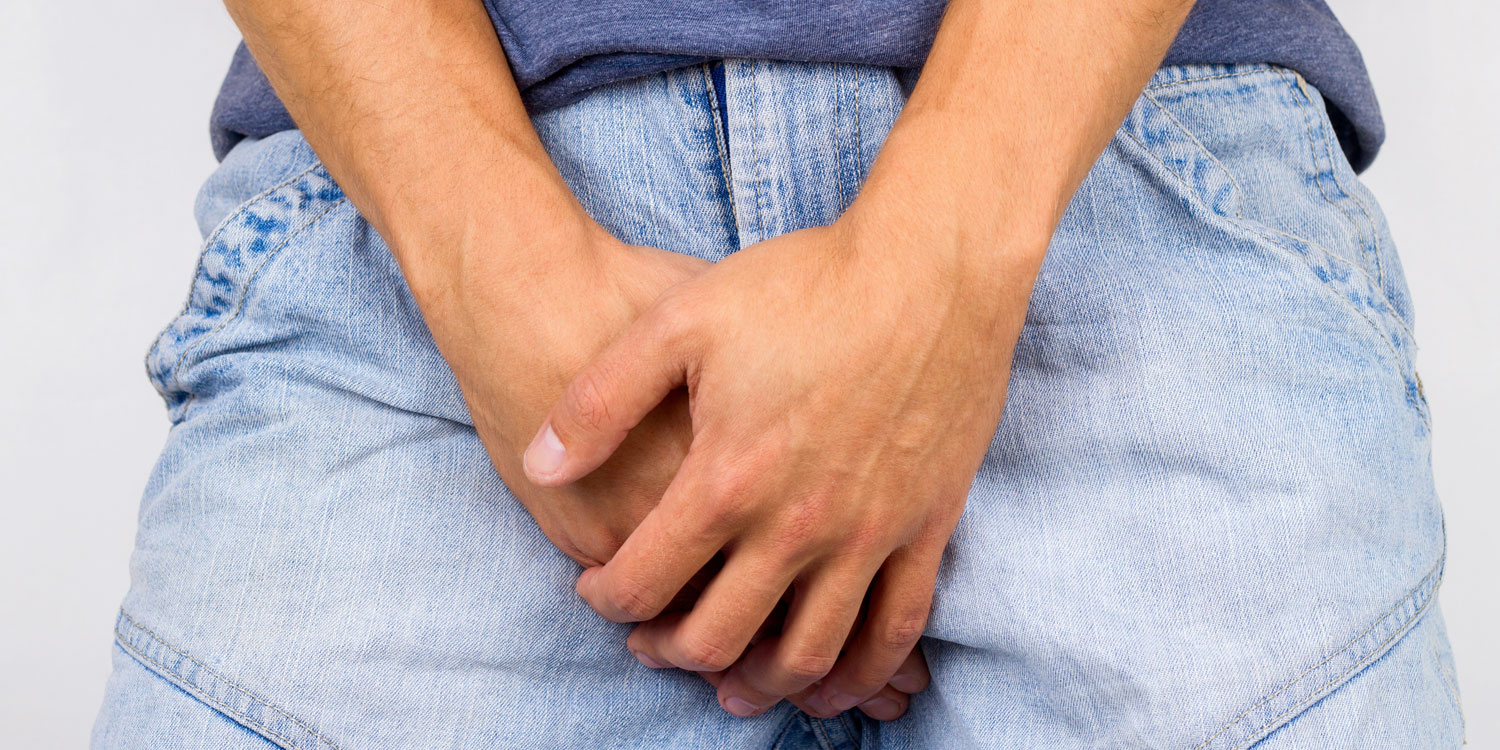Why Does Chlamydia Come Back After Treatment?
Here’s the hard truth: Chlamydia isn’t always a one-and-done deal. Even if you took your antibiotics exactly as prescribed, there's still a chance you could end up testing positive again.
Reinfection from an Untreated Partner
This is the most common cause. You get treated. Your partner doesn’t. You hook up again, bam, reinfected.
It’s called the ping-pong effect, and it’s shockingly easy to fall into, especially in relationships where one person is asymptomatic or avoids testing.
- Reality check: Up to 70% of people with chlamydia show no symptoms, especially vulva owners.
- Result: They don’t get tested, think they’re fine, and unintentionally reinfect you.
False Sense of Cure
If you don’t retest, you don’t really know if the infection cleared. Some strains are more stubborn. Some bodies metabolize meds differently. And sometimes… people just forget a dose.
- Recommended: CDC suggests retesting three months after treatment, even if you feel fine.
- Not optional: If your partner was never tested, assume the bacteria is still in play.
Antibiotic Resistance (Yes, It’s Happening)
While rare, some chlamydia strains are becoming resistant to doxycycline and azithromycin, the most common treatment options. A 2023 study published in Clinical Infectious Diseases reported early signs of resistance clusters in high-incidence communities.
This means one round of treatment may not be enough for some cases, and a second, longer dose could be required.
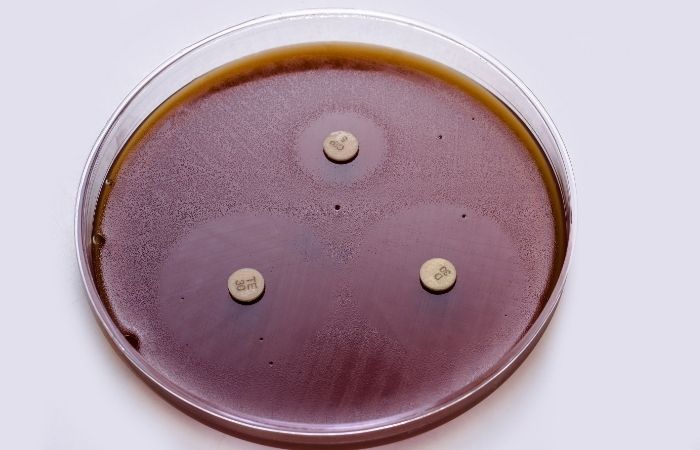
People are also reading: Why Herpes Testing Isn’t Routine, and What to Do About It
How It Feels: The Emotional Whiplash of Recurrence
Let’s get honest for a second. Getting diagnosed with an STD, even one as common and treatable as chlamydia, sucks. But getting it again? That can shatter you.
You start asking yourself impossible questions:
- Did I screw up again?
- Is my partner cheating?
- Am I just... dirty?
The stigma hits hard. And even if you logically know that 1 in 20 sexually active young adults get reinfected within a year, it doesn’t make it feel less personal.
You Are Not the Exception
One 2024 meta-analysis from the Journal of Sexual Health showed that up to 25% of people who test positive for chlamydia and get treated will test positive again within six months. That doesn’t mean they’re “irresponsible.” It means this infection is sneaky.
It can lurk silently. It can bypass treatment through reinfection. And yes, it can survive when medication isn’t fully absorbed or properly used.
Quick Myth Check: It Wasn’t the Toilet Seat
No, you didn’t get it from a gym bench or a public toilet. Chlamydia spreads through sexual contact only, vaginal, anal, or oral.
If you're testing positive again, it’s because of human contact, not bathroom surfaces.
Is It Symptoms… Or Just Your Anxiety?
Another cruel twist: many people who are “reinfected” aren’t experiencing physical symptoms; they’re experiencing symptom anxiety.
- Burning pee? Might be irritation from a yeast imbalance post-antibiotics.
- Weird discharge? Could be natural variation during your cycle.
- Itchy genitals? Might be lingering stress or microflora disruption.
That’s why retesting is essential, not just for diagnosis, but for peace of mind. Testing doesn’t just treat your body. It treats the *spiral* in your brain.
Check Your STD Status in Minutes
Test at Home with RemediumChlamydia Test Kit
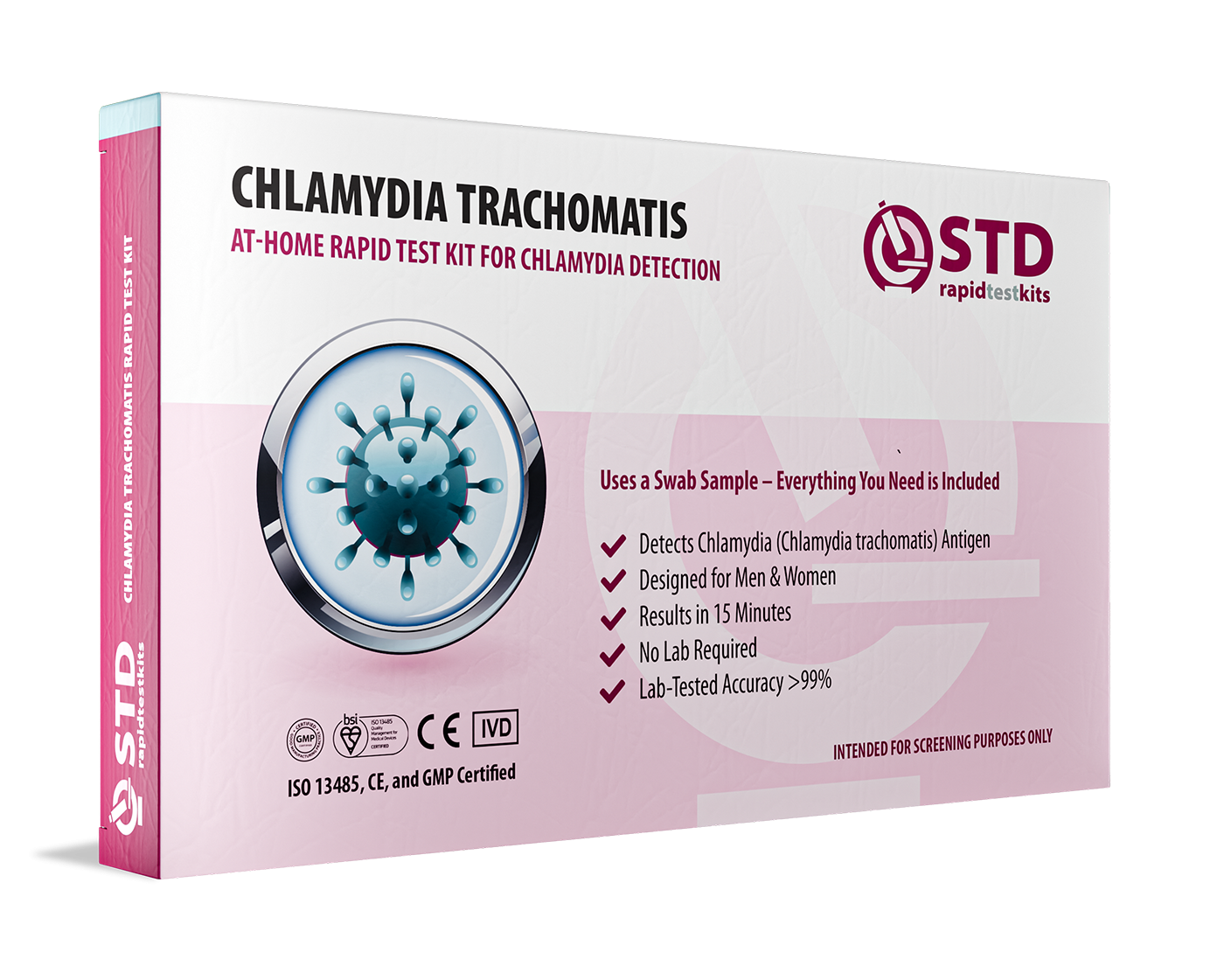
 For Men & Women
For Men & Women Results in Minutes
Results in Minutes No Lab Needed
No Lab Needed Private & Discreet
Private & DiscreetOrder Now $33.99 $49.00
How to Break the Chlamydia Loop, For Good
If you’re tired of playing STI whack-a-mole, the good news is there is a way out. But it takes more than one pill and a prayer.
Retest, Even If You Feel Fine
This is the golden rule. Whether or not you have symptoms, you must retest 3 months after treatment. Why?
- Silent infections: Most chlamydia cases are asymptomatic, especially in women.
- False sense of cure: The meds might suppress symptoms without fully clearing the infection.
- New exposure: A new partner, even if they “feel fine”, could unknowingly reinfect you.
You can order a discreet Chlamydia + Gonorrhea Home Test Kit and get results fast, without the waiting room stare-down.
Make Sure Your Partner Gets Treated
We get it; it’s awkward. But untreated partners are the biggest source of repeat infection. If you don’t both treat, you’re just passing bacteria back and forth.
Some clinics offer expedited partner therapy (EPT), where you can get meds for your partner even if they don’t come in. Or you can send them a link to a test kit and keep it drama-free.
Don’t Assume One Pill Fixes Everything
There’s a dangerous myth floating around hookup culture: “Just take the pill and you’re good.”
Except… no.
The standard azithromycin dose (1g, one time) is no longer recommended as the go-to treatment due to rising resistance. Many clinicians now prescribe:
- Doxycycline: 100mg, twice daily for 7 days (more effective)
- Test of cure: Especially for pregnant individuals or high-risk groups
One study in Sexually Transmitted Infections Journal found that doxycycline clears chlamydia in 98.4% of cases, compared to 93.1% with azithromycin.
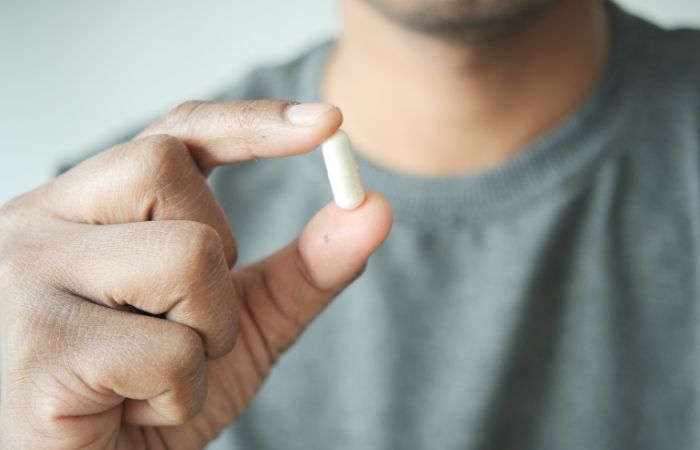
People are also reading: How Soon After Sex Can You Test for STDs?
Case Study: “Why Did I Keep Testing Positive?”
“I tested positive for chlamydia three times in eight months. I thought I was cursed.”
That’s what Jasmine, 26, told us. Her story might sound familiar.
- Round 1: She took azithromycin, no symptoms, assumed it worked.
- Round 2: Three months later, her annual Pap shows chlamydia again.
- Round 3: New partner, condom broke, got retested “just in case,” positive again.
After a lot of tears and Google spiraling, she finally learned her first partner had never gotten tested. “He thought it went away on its own,” she said. “I wanted to scream.”
Jasmine’s Takeaway
“Now I get retested every three months. I send my partner's test kit links. If they won’t test, I won’t touch them.”
Hard boundaries, but smart ones.
When It’s Not Chlamydia: Look-Alike Conditions
Sometimes, it’s not reinfection at all. Here’s a reality check: several other infections and conditions can mimic chlamydia symptoms even if your test is negative.
- Mycoplasma genitalium: A rising, underdiagnosed STI that causes similar symptoms and is highly resistant to common antibiotics.
- UTIs or bacterial vaginosis (BV): Both can cause burning, odor, and discomfort after sex.
- Residual inflammation: Even after the infection clears, irritation can linger for days or weeks.
If you’re still feeling off, a full-panel test like the Complete 8-in-1 STD At-Home Rapid Test Kit can help catch hidden culprits.
Pro Tip
If symptoms linger beyond two weeks post-treatment, ask your provider about extended antibiotic regimens or additional diagnostics. Never assume it’s all in your head.
Common Misconceptions About Recurrent Chlamydia
Let’s knock out some of the most damaging lies about chlamydia reinfection. These myths are everywhere, and they’re part of what keeps people stuck in shame and silence.
Myth: If you test positive again, someone must’ve cheated.
Truth: Not necessarily. It could be a lingering infection, incomplete treatment, or even a missed diagnosis in your partner.
Myth: You can only get chlamydia once.
Truth: You can get chlamydia multiple times; there’s no immunity after treatment.
Myth: A one-pill treatment cures it 100% of the time.
Truth: Some cases require extended antibiotics. Resistance is rising.
Myth: If I have no symptoms, I must be fine.
Truth: Chlamydia is famously asymptomatic in up to 70% of cases.
Check Your STD Status in Minutes
Test at Home with Remedium3-in-1 STD Test Kit
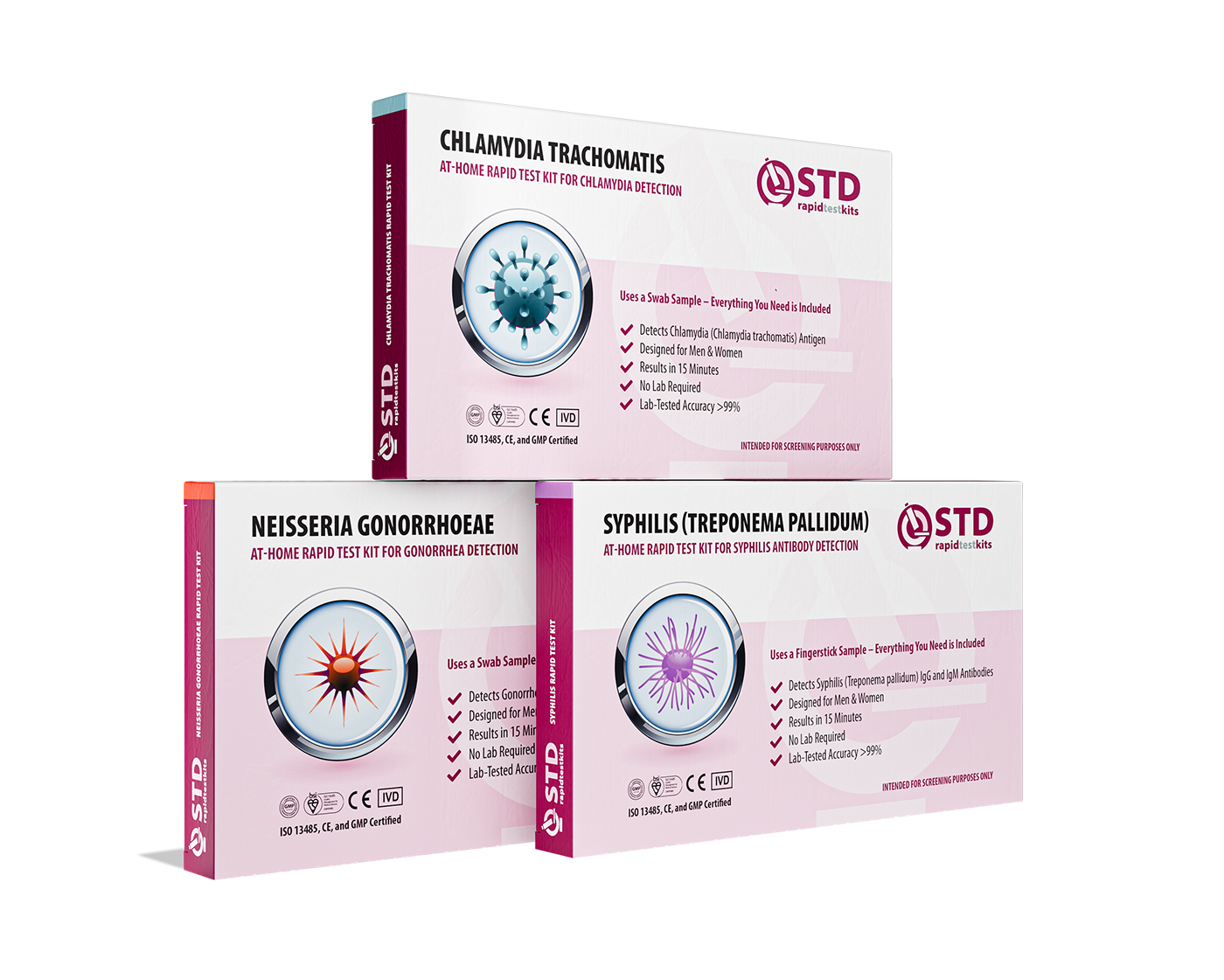
 For Men & Women
For Men & Women Results in Minutes
Results in Minutes No Lab Needed
No Lab Needed Private & Discreet
Private & DiscreetOrder Now $69.00 $147.00
For all 3 tests
FAQs
1. Can chlamydia come back on its own?
No. If it returns, it's likely reinfection or incomplete treatment, not spontaneous reappearance.
2. I tested positive again; did my partner cheat?
Not necessarily. They may have been untreated from before or were asymptomatic without knowing they had it.
3. How long after treatment should I wait to have sex?
Wait at least 7 days after finishing antibiotics, and only if both partners were treated.
4. Can chlamydia survive antibiotics?
In rare cases, yes. Some strains show signs of resistance. Retesting is key.
5. Can I get chlamydia again from the same person?
Absolutely. If they weren’t treated or retested, they can reinfect you.
6. Should I get a “test of cure” after treatment?
It’s not always required but highly recommended if you’re pregnant or symptomatic again.
7. My symptoms are gone, am I still contagious?
Possibly. You should wait a full 7 days post-treatment before resuming sex.
8. Does chlamydia cause long-term damage?
If left untreated, yes. It can lead to PID, infertility, or chronic pain.
9. Can condoms prevent chlamydia?
Yes, when used correctly, they greatly reduce your risk. But no method is 100%.
10. Should I test again even if I trust my partner?
Yes. Trust doesn’t prevent bacteria. Retesting is about health, not suspicion.
Take the Guesswork Out of It
You don’t need to sit with anxiety, guilt, or confusion. You don’t need to wait for symptoms, or for someone else to take responsibility.
If you’ve been treated for chlamydia and still feel off, or if your test is positive again, the most powerful thing you can do is retest, recheck, and reclaim your peace of mind.
You deserve clarity, not confusion. Take back control with a discreet, accurate at-home test:
Whether it's a new infection, an old one you never fully cleared, or a partner who swears they’re “clean”, you don’t need to wonder. You need answers. And you deserve them now.
Sources
1. Verywell Health – Can Chlamydia Come Back After Treatment? Here’s How
2. Medical News Today – Chlamydia Treatment Failed Twice: Why and Next Steps
3. PMC – The Role of Reinfection and Partner Notification in Chlamydia Control
4. PMC – Repeated Chlamydia Infections: Prevalence, Immunity, and Reinfection Risks
5. CDC – Chlamydia Treatment Guidelines: Why Reinfection Happens (Partner Treatment, Retesting)






